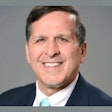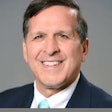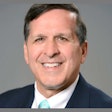Let’s talk about the elephant in the room: Working in a dental office can be hard. Not just because of the clinical demands or tight schedules, but because of the people. Interestingly, when I asked a few dental assistants what the biggest challenge was, they didn’t hesitate: “It’s the people.”
And ironically? The people can also be the best part.
So, how do we handle the tricky stuff: the conflicts, power dynamics, and communication breakdowns that make a job feel overwhelming? Let’s explore a few common pain points and what to do about them.
Dealing with a difficult boss
 Lisa Newburger.
Lisa Newburger.
Example: You have a boss who micromanages every little task, even though you’ve been doing it for years. Or maybe the boss plays favorites, ignoring some team members while scrutinizing others.
Reality check: While it’s tempting to vent or confront the issue head-on, that can backfire in a small office setting where job security isn’t guaranteed.
Tactic: Instead of saying, “You don’t trust me,” try, “I noticed you made some corrections to the tray setup I did. Can you walk me through what you prefer so I can make sure I’m doing it your way next time?”
This shows humility while prompting clarity and opening a dialogue. You’re addressing the tension without accusing them, which helps keep your job safe and your dignity intact.
Let’s be real. Power dynamics in a dental office are complex. While we all like to say, “Communication is key,” it’s not always safe (or smart) to voice concerns when the issue is your employer.
In today’s at-will employment environment, missteps can cost you your job. Instead of confronting your boss head-on, consider a more diplomatic approach.
Try the following approaches:
- Ask for advice about a difficult situation you’ve encountered.
- Frame it as a learning opportunity, something you’re looking to handle better in the future.
- Avoid “I feel” language at work. Instead, focus on process improvement:
“This situation was difficult. Do you have any suggestions for handling it differently next time?”
That tone keeps the conversation constructive and positions you as a team player.
Tensions with a colleague
Example: You constantly clean up after a co-worker who doesn’t restock the operatory or who leaves dirty instruments in the ultrasonic cleaner. Or someone rolls their eyes or snaps at you in front of others when things get busy.
Tactic: Try something like, “Hey, I’ve noticed we’ve been bumping heads a bit when things get hectic. I want us to be able to work smoothly together. Can we talk about what’s not working?”
If they push back, stay calm. Bring examples, such as, “Yesterday, when I asked for help with room turnover, I felt like I was being dismissed. If we can support each other in those moments, it would make a big difference.”
Pro tip: If you're nervous, practice with a friend first. The goal is clarity, not conflict.
Workplace drama? It happens. And sometimes, people genuinely don’t realize how they’re coming across. If co-workers are rubbing you the wrong way, try giving them the benefit of the doubt.
Start the conversation with empathy: “It seems like we’re having trouble working together. I’d like to figure out how we can fix that.”
Come prepared with specific examples, but avoid accusations. Stay calm, listen, and resist the urge to escalate. Most people don’t like confrontation (even gentle confrontation), but clear communication is the only way to shift the dynamic.
'Why don’t I get paid more?'
It’s a fair question, and one a lot of people in dental offices are asking. First, do your homework:
- Check Glassdoor, Indeed, or salary benchmarks for your role in your area.
- Keep a brag list of everything you do that goes above and beyond.
Are you stepping up without being asked? Helping others? Taking the initiative? When you show your value consistently, you build the case for better pay.
And here’s the tough love: Are you truly performing at the level you expect to be paid for? If you were the office manager, would you be impressed with your performance? Think like a leader, and you’ll start to act (and be perceived) like one.
Final thought
Dental offices are intense environments. Fast-paced, personal, emotionally charged. That’s why working on the people side of dentistry is just as important as the clinical side. If we can be honest about what makes it hard -- and start having those awkward conversations -- we can also make it better.
Lisa Newburger is a talent acquisition specialist with Your Partner in HR, where she puts her superpower of connecting people to work. She has a master's degree in social work from Loyola University and a bachelor's degree from Ohio State University. Newburger is a licensed independent social worker supervisor. She has published more than 300 articles and has earned awards such as Toastmaster of the Year and Distinguished Toastmaster.
The comments and observations expressed herein do not necessarily reflect the opinions of DrBicuspid.com, nor should they be construed as an endorsement or admonishment of any particular idea, vendor, or organization.



















